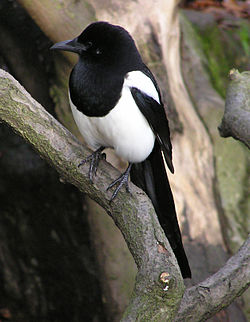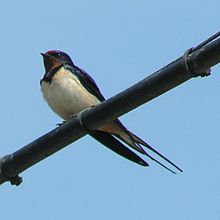Grammar


1.
1.
- Pronouns And Determiners - Some, Any, No, None, Somebody, Anybody, Nobody Etc
Practise using some, any, somebody, anybody etc, with these gapfull exercises. And also check out some related idioms and expressions. Click and Drop - In all these gapfill exercises, click on a word in the top box, then on a suitable gap. Pronouns...
- Confusing Words - Comparison With As And Like
The uses of as and like are often confused. Try and sort them out by doing these quizzes. Matching quiz - sentences with as and like Complete the rules Different uses of as - multiple choice quiz Choose between as and like, gapfill quiz Verbs of...
- Bits And Pieces - Some Exercises On Partitive Nouns
We use several words to talk about one bit or part or a large amount of something when using uncountable nouns. These are sometimes called partitive nouns and many of them collocate with certain nouns. test your knowledge with these exercises. (One...
- Confusing Words - Different, Other, Another And Next
Sometimes students can get a bit confused with the words: (a) different, another, (the) other and (the) next. Try the first exercise, then we'll take a look at the differences, with some more exercises and a story. Click and Drop - Where...
- More 'intelligent' Words
Merriam-Webster have another 'Top Ten' list, of what they call 'Simple but intelligent' ways to spruce up your conversation. Intelligent as they may be, some of these are far from simple, and might even get you funny looks if you brought...
Grammar
Vocabulary corner - Old wives tales and superstitions
The Oxford Advanced Learner's Dictionary has the following definitions:
- old wives' tale - an old idea or belief that has been proved not to be scientific
- supersition - the belief that particular events happen in a way that cannot be explained by reason or science; the belief that particular events bring good or bad luck
Here is a little information about one piece of folklore, and a couple of exercises on some old wives' tales and superstitions that exist in Britain.
St Swithin's Day
In the US they have Groundhog Day, in the UK we have St Swithin's Day (15th July).
- 'St. Swithin's day if thou dost rain
- For forty days it will remain
- St. Swithin's day if thou be fair
- For forty days 'twill rain nae mair.'
Explanation - thou is the old form of the 2nd person singular pronoun, dost is the old 2nd person singular form of the verb do. In the last line 'twill is a poetic form of it will and nae mair is dialect for no more.
In Buckinghamshire they apparently have a rather simpler and more up-to-date version (Wikipedia).
- If on St Swithin's day it really pours
- You're better off to stay indoors.
The magpie (L) and the swallow (R)


Images from Wikipedia
Exercise 1 - These should be quite easy, in several cases the lines rhyme. Solve the anagrams and type in the words.
| Red sky at (t g h i n), shepherds delight. | |||
| Red sky in the (g o n m r n i), shepherd's warning. | |||
| 2. | An (p p e a l) a day keeps the doctor away. | ||
| 3. | Feed a (c l d o), starve a fever. | ||
| 4. | Lucky at cards, unlucky in (o e v l). | ||
| 5. | April showers bring May (o e l f r s w). | ||
| 6. | A bride should wear something old, something new, | ||
| something (d e o o w b r r), something (e u b l). | |||
| 7. | On seeing a magpie - One for sorrow, two for (yjo), three for a girl, four for a boy ... | ||
| 8. | On walking on the pavement - Step on a (a k c r c), break your mother's back | ||
| 9. | It's unlucky to walk under (r a e d s l d). | ||
| 10. | Breaking a (o r r i r m) means seven years bad luck. | ||
| 11. | Keep your (n g e f s r i) crossed when you want good luck. | ||
| 12. | Early to bed and early to rise, makes a man healthy, (thewaly) and (swie). |
Exercise 2 - A little harder perhaps. Try doing it by process of elimination.
leg · glass · wood · snoring · month · rain · umbrella · stairs · play · spider · pinch · summer
| The first time you see the New Moon should not be through . | ||
| 2. | Actors never call Shakespeare's 'Macbeth' by name, but call it 'The Scottish '. | |
| 3. | If you spill any salt, throw a of it over your left shoulder. | |
| 4. | It's unlucky to keep your up indoors. | |
| 5. | One swallow doesn't make a . | |
| 6. | When swallows fly low, it means there's going to be . | |
| 7. | For good luck you should touch . | |
| 8. | Killing a will make it rain the next day. | |
| 9. | Sleeping on your back encourages . | |
| 10. | Only eat seafood if there's an 'r' in the . | |
| 11. | In the theatre 'Break a !' is said to wish someone 'Good Luck' | |
| 12. | Some people think it's unlucky to cross somebody else on the . |
Answers
- Ex 1 - 1. night,2. morning, 3. apple, 4. cold, 5. love, 6. flowers, 7. borrowed, 8. blue, 9. joy, 10. crack, 11. ladders, 12. mirror, 13. fingers, 14. wealthy, 15. wise
- Ex 1 - 2. glass, 2. play, 3. pinch, 4. umbrella, 5. summer, 6. rain, 7. wood, 8. spider, 9. snoring, 10. month, 11. leg, 12. stairs
loading...
- Pronouns And Determiners - Some, Any, No, None, Somebody, Anybody, Nobody Etc
Practise using some, any, somebody, anybody etc, with these gapfull exercises. And also check out some related idioms and expressions. Click and Drop - In all these gapfill exercises, click on a word in the top box, then on a suitable gap. Pronouns...
- Confusing Words - Comparison With As And Like
The uses of as and like are often confused. Try and sort them out by doing these quizzes. Matching quiz - sentences with as and like Complete the rules Different uses of as - multiple choice quiz Choose between as and like, gapfill quiz Verbs of...
- Bits And Pieces - Some Exercises On Partitive Nouns
We use several words to talk about one bit or part or a large amount of something when using uncountable nouns. These are sometimes called partitive nouns and many of them collocate with certain nouns. test your knowledge with these exercises. (One...
- Confusing Words - Different, Other, Another And Next
Sometimes students can get a bit confused with the words: (a) different, another, (the) other and (the) next. Try the first exercise, then we'll take a look at the differences, with some more exercises and a story. Click and Drop - Where...
- More 'intelligent' Words
Merriam-Webster have another 'Top Ten' list, of what they call 'Simple but intelligent' ways to spruce up your conversation. Intelligent as they may be, some of these are far from simple, and might even get you funny looks if you brought...
